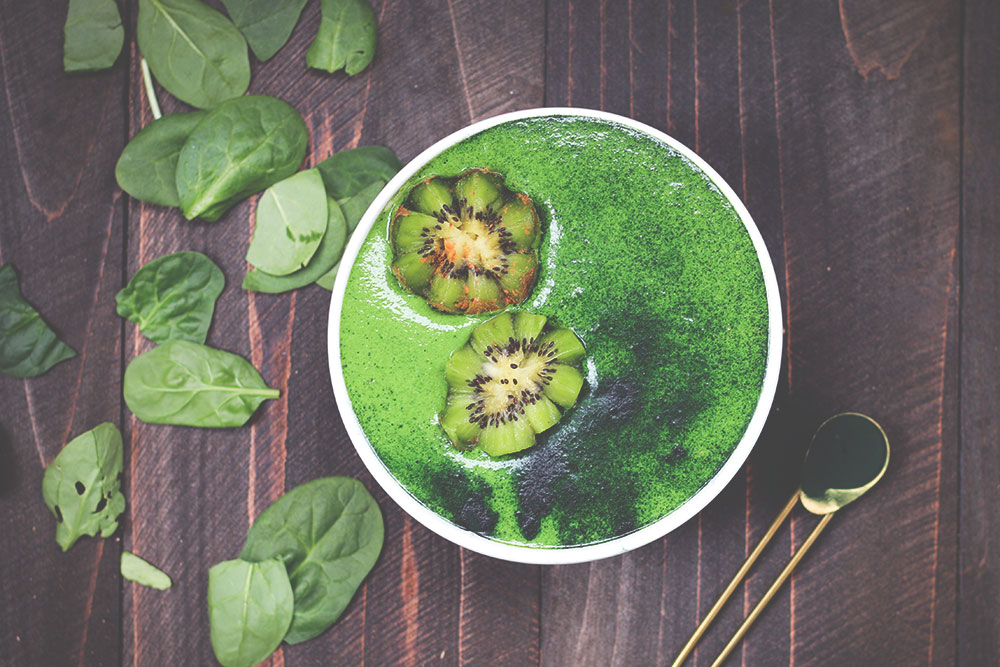We all deserve to be well, yet society has capitalized on a narrow definition of it that appears to only be reserved for the elite. Let’s unpack the ideas around what true wellness should be.
BY: HANNAH TURNBULL, RDN, LD
If you search #wellness on Instagram or Facebook, you’re bound to find unlimited pictures of green juice, yogis wearing Lululemon athletic wear, smoothie bowls, and home brewed kombucha. And it’s not to say these things aren’t great and enjoyable – I enjoy drinking kombucha and have made my own before. I also find yoga really grounding.
But is the message that wellness is simply eating certain “superfoods” and posing in downward facing dog really improving our health?
Let’s unpack the concept of wellness and its problems. First, everyone on this planet deserves to feel well and take care of themselves – if they want to of course; society often forgets health is not a moral obligation. But the way “wellness” is portrayed makes it exclusive. The message of wellness is represented by people who are
1. Thin
2. White
3. Have a lot of money
4. Immense privilege
This exclusivity makes people who do not fit this standard ‘wellness mold’ feel as if they don’t belong, that wellness is not for them, and that their body is wrong.
It makes wellness seem unattainable.
The idea that a certain body type represents wellness is superficial and harmful. We simply cannot know if someone is well by looking at them. Just because someone lives in a smaller body does not mean they are well. When someone exists in a larger body, it doesn’t mean they are unwell. Weight does not determine if someone is well.
What we need to emphasize is that people of all shapes, sizes, colors, abilities, and genders deserve to feel well. However, the media does not portray this, considering every wellness magazine or ad has a thin white woman in frame. The truth is, many of these women on the wellness forefront who are promoting green juice and “wellness” may be struggling with orthorexia, obsessive thoughts around food, eating disorders, and mental health issues.
A better indicator of wellness is someone’s thoughts, feelings, and behaviors, and less focused on a person’s physical appearance and how closely they resemble the “wellness” message.
It’s undeniable that society’s idea of wellness is elitist. It’s not in most people’s budget to be able to afford all organic produce and meat, or green juice every day. Not everyone can afford to shop at lululemon, pay a monthly membership for yoga, or to get a weekly massage. Not everyone has the time to make their own hummus or cook from scratch every single meal. Most people will likely not be able to afford the 17-grain wholesome, ridiculously glorified bread.
And quite honestly, most of this is very unnecessary.
I don’t always buy organic produce unless it’s on sale. I rinse my fruits and vegetables, and am grateful that my produce doesn’t rot after a day. Sometimes I go a day without eating a vegetable, which doesn’t make me malnourished.
I am also a huge fan of using my microwave, and heating up a three-minute meal after a long day at work. We need to give more credit to our bodies that are amazingly adaptive. What’s important with food is variety, balance, and your relationship with food. Needless to say, wellness has been diluted in our society by messaging in the media. True wellness is focused on wellbeing, and takes social, emotional, spiritual, environmental, occupational, intellectual and physical health into consideration.
Wellbeing does not compromise one aspect of wellness at the expense of another.
For example, we know human bodies like movement. But obsessive exercise compromises physical and mental health. If you drink green juice instead of eating food, this can be damaging to your emotional and physical health, as restriction can lead to disordered eating over time and drinking juice all the time leaves out many important nutrients that we need (and let’s not forget the satisfaction of chewing food).
Wellbeing looks different for everyone, and it’s far more complex than what we eat and how we move our bodies. Some questions to ask yourself are:
- Am I really feeling well?
- What is my intention behind “wellness” I choose to engage in?
- Is it for self care, or to fit a societal mold of wellness?
- What can I do to take care of myself intuitively?
Challenge the norm, and get to the core of your truth.
Adapted from the original article.
HEADER IMAGE: KIMBER PINE
Hannah Turnbull, RDN, LD is a Registered Dietitian Nutritionist based in Denver, CO helping others build healthy relationships with food and their body. In a world full of food rules and restriction, she helps individuals navigate what works in their everyday lives. Learn more at Nourished with Hannah.

